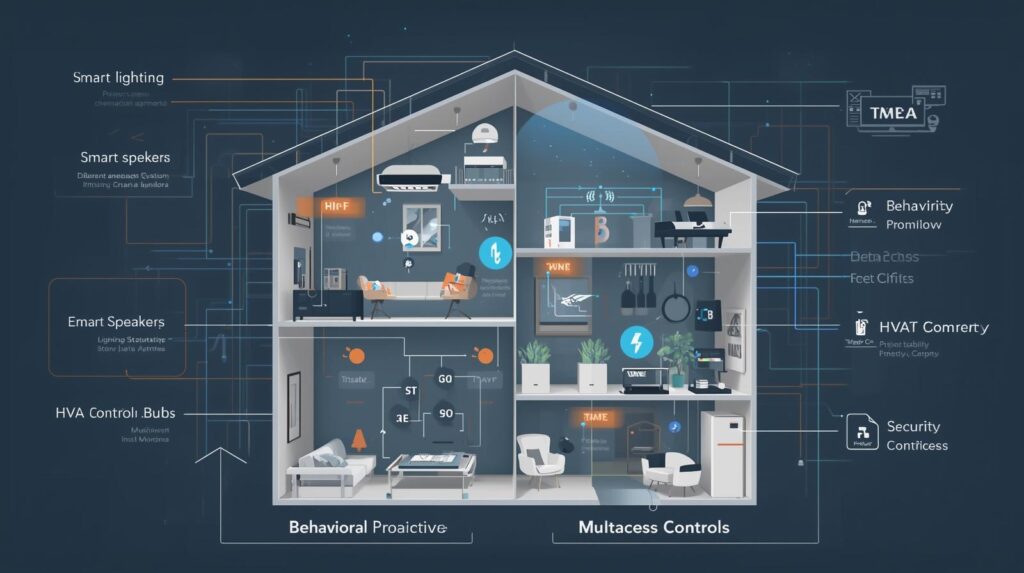The evolution of smart homes is being fueled by innovative home automation systems that prioritize energy efficiency, sustainability, and convenience. As households seek to reduce energy costs and environmental impact, the integration of intelligent technologies has become crucial in optimizing residential energy consumption. By leveraging interconnected devices, advanced sensors, artificial intelligence (AI), and data analytics, modern home automation systems are transforming the way energy is managed, enabling homeowners to achieve both comfort and efficiency.
Download PDF Brochure @ https://www.marketsandmarkets.com/pdfdownloadNew.asp?id=469

Intelligent Energy Monitoring and Control
One of the most significant innovations in home automation is the development of intelligent energy monitoring and control systems. Smart meters, IoT-enabled devices, and connected sensors allow homeowners to track energy usage in real time across appliances, lighting, heating, and cooling systems. AI-driven platforms analyze this data to provide actionable insights, automatically adjusting device operation to reduce energy waste. For instance, smart lighting systems can dim or switch off lights in unoccupied rooms, while HVAC systems can optimize temperature settings based on occupancy patterns, weather conditions, and energy demand, resulting in substantial energy savings.
Integration with Renewable Energy Sources
Modern home automation systems are increasingly being designed to integrate with renewable energy sources such as solar panels, wind turbines, and home battery storage systems. These systems intelligently manage energy generation, storage, and consumption, allowing homeowners to maximize the use of clean energy while minimizing dependence on the grid. Excess solar energy, for example, can be stored in home batteries during peak sunlight hours and used later to power appliances or charge electric vehicles. This not only lowers electricity bills but also contributes to a sustainable, eco-friendly lifestyle.
Predictive Energy Management
Innovative home automation platforms are incorporating predictive energy management technologies to enhance efficiency. Machine learning algorithms analyze historical energy usage, occupancy patterns, and weather forecasts to anticipate energy needs and optimize device operation. This predictive approach allows systems to pre-cool or pre-heat rooms, schedule appliance operation during off-peak hours, and balance energy consumption between the grid and stored renewable sources. By proactively managing energy, homeowners can achieve both cost savings and enhanced comfort.
Smart Grid Interaction and Demand Response
Advanced home automation systems enable seamless interaction with smart grids, facilitating participation in demand response programs. During periods of high electricity demand, automated systems can reduce or shift energy consumption, helping to alleviate stress on the grid while offering potential financial incentives to homeowners. Real-time communication with the energy grid also allows for dynamic energy management, optimizing the use of grid-supplied and renewable energy sources to enhance efficiency and sustainability.
Future Trends and Innovations
The future of energy-efficient smart homes will be driven by continued innovations in automation technology. Voice-controlled systems, interoperable devices, edge computing, and AI-enhanced analytics will further streamline energy optimization. Integration with electric vehicles, energy storage solutions, and community energy networks will create a more holistic approach to energy management, allowing homes to become active participants in a sustainable energy ecosystem.